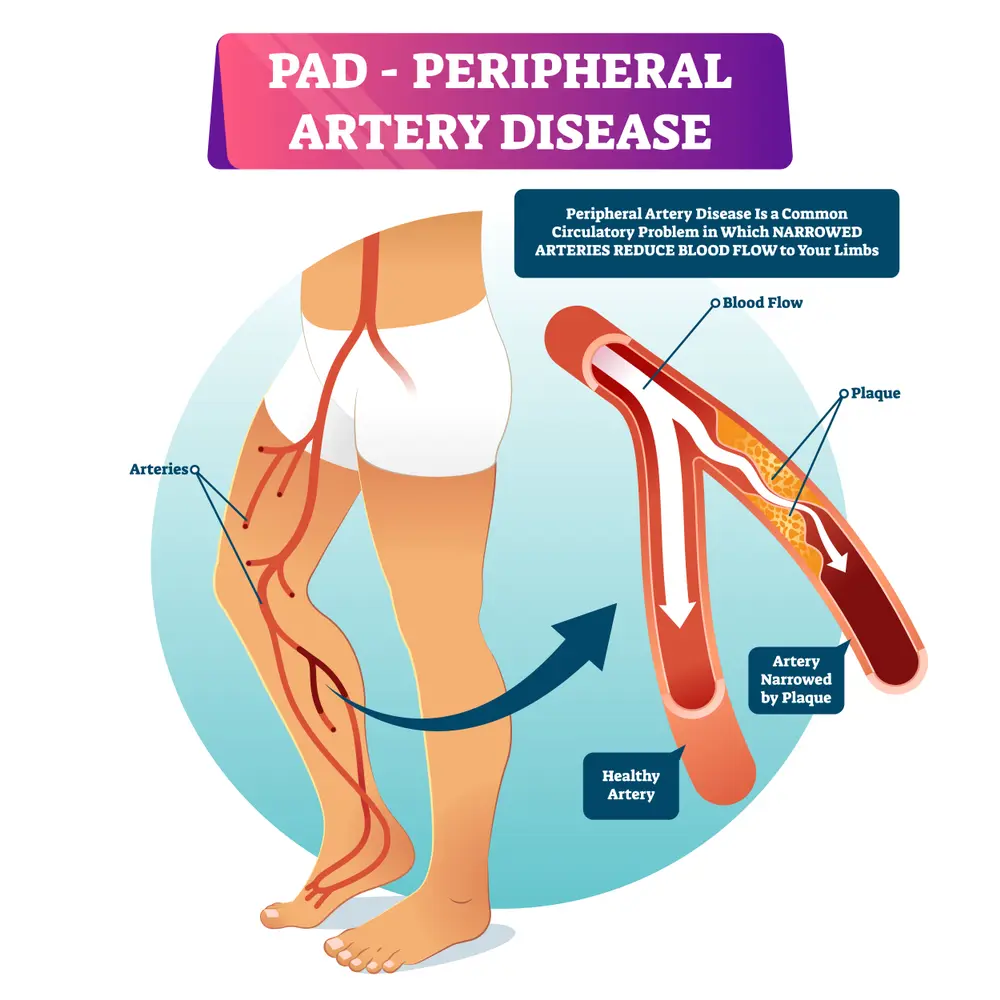Cardiovascular Disorders

Acupuncture, a key pillar of Traditional Chinese Medicine (TCM), has shown promising results in supporting cardiovascular health. By gently stimulating specific points along the body’s meridians, acupuncture helps regulate the flow of Qi (vital energy) and blood—improving circulation, easing tension, and promoting balance within the cardiovascular system. Studies suggest it may aid in lowering high blood pressure, stabilizing heart rate variability, and easing symptoms related to arrhythmias, angina, and other heart-related conditions.
One of the key benefits of acupuncture in cardiovascular care is its ability to activate the parasympathetic nervous system. This activation encourages deep relaxation and stress reduction—both essential for heart health and overall well-being. Acupuncture serves as a holistic complement to conventional cardiovascular treatments, supporting the body’s natural healing mechanisms without adding additional strain to the system.
Cardiovascular disorders encompass a range of conditions affecting the heart and blood vessels. These can be either congenital (present at birth, such as ventricular septal defect or coarctation of the aorta) or acquired (developed over time, like hypertension or cardiomyopathy). In North America, cardiovascular disease remains the leading cause of death, accounting for nearly 1 in every 4 fatalities. Recognizing early signs—such as chest pain, shortness of breath, edema, angina, or poor circulation—is critical in seeking timely and effective care.
Many patients have turned to our Acupuncture Treatment for cardiovascular conditions as a natural, supportive therapy. Whether managing chronic symptoms or enhancing recovery, acupuncture offers a gentle yet effective approach to improving cardiovascular function and overall health. If you’re looking for a holistic path to support your heart health, we welcome you to explore how acupuncture may benefit you.

Angina
Angina is a condition characterized by chest pain resulting from an insufficient supply of oxygen-rich blood to the heart muscle.
The intensity of pain can vary from mild discomfort to severe pressure and typically persists for more than 15 minutes. This discomfort is often a signal that the heart is under stress and not receiving the oxygen it needs to function properly.
The most common cause of angina is coronary artery disease (CAD), a condition in which the arteries supplying blood to the heart become narrowed and hardened due to the buildup of plaque. This restriction impairs blood flow, increasing the risk of serious cardiovascular events such as heart attacks.

Edema
Edema is a condition marked by the accumulation of excess fluid in the body’s tissues, often resulting from leakage of fluid from the capillaries into surrounding areas.
This buildup can be either localized—affecting specific parts of the body—or generalized, impacting multiple areas and potentially interfering with daily activities and overall comfort.
Edema is frequently associated with underlying health conditions such as liver disease, congestive heart failure, or kidney dysfunction. Identifying and addressing the root cause is essential for effective management and long-term relief.

Chest Pain Treatment
Chest pain is a symptom that can affect individuals of all ages, though it is more commonly associated with patients who have underlying heart conditions.
It often presents as a sharp, stabbing sensation in the center of the chest or a heavy, constricting pressure that can make breathing difficult. In some cases, chest pain may also be accompanied by additional symptoms such as nausea, sweating, shortness of breath, or dizziness.
Because chest pain can be a warning sign of serious medical conditions—such as a heart attack—it should never be ignored. Prompt evaluation by a healthcare professional is essential to determine the cause and ensure timely, appropriate care.

High Blood Pressure, Hypertension
High blood pressure, also known as hypertension, occurs when the force of blood against the artery walls remains consistently elevated.
If left unmanaged, hypertension can increase the risk of serious health complications, including congestive heart failure, stroke, and kidney disease. It is often referred to as a “silent threat” because it may not present noticeable symptoms until significant damage has occurred.
For individuals who struggle to lower their blood pressure through diet and lifestyle changes alone, acupuncture offers a safe and effective complementary treatment. By promoting relaxation, improving circulation, and supporting the body’s natural regulatory mechanisms, acupuncture may help reduce blood pressure and enhance overall cardiovascular health.

Peripheral Artery Disease (PAD), Poor Blood Circulation
High blood pressure, medically known as hypertension, occurs when the force of blood against the artery walls remains consistently elevated over time.
If not properly managed, hypertension can lead to serious health complications, including congestive heart failure, stroke, and kidney disease. It is a major risk factor that often develops without noticeable symptoms, making regular monitoring and early intervention essential.
For individuals who are unable to control their blood pressure through diet and lifestyle changes alone, acupuncture presents a safe and effective complementary treatment option. By supporting the body’s natural regulatory systems, reducing stress, and improving circulation, acupuncture can play a valuable role in managing hypertension and promoting overall cardiovascular wellness.
Naturopath Osteopath Clinic: Acupuncture Services

Musculoskeletal Pain
Musculoskeletal pain can vary in intensity, ranging from mild discomfort to severe, debilitating pain that affects daily activities and quality of life. Acupuncture offers a wide range of therapeutic benefits for musculoskeletal conditions. It has been shown to help reduce pain, decrease inflammation, and improve overall physical function. By targeting specific points in the body, acupuncture supports natural healing processes and can be an effective, non-invasive option for managing chronic or acute musculoskeletal issues.

Obstetrics, Gynecological Conditions
Acupuncture, a time-honored practice rooted in Traditional Chinese Medicine, has been widely utilized in obstetrics and gynecology to help manage a variety of symptoms and conditions. It is particularly effective in relieving labor pain, menstrual cramps, menopause-related discomfort, and supporting fertility treatment. Beyond reproductive health, acupuncture also offers relief for conditions such as insomnia and chronic pain syndromes, including trigeminal neuralgia. By promoting balance within the body and enhancing natural healing mechanisms, acupuncture serves as a safe and holistic approach to improving overall well-being.

Cardiovascular Disorder
Cardiovascular disorders are medical conditions that impact the heart and the body’s circulatory system. These disorders may be classified as either congenital—present at birth—or acquired, developing over time due to lifestyle or underlying health factors. They also encompass conditions such as cardiomyopathies, which affect the heart muscle’s structure and function.

Respiratory Conditions
Acupuncture serves as a valuable complement to Western medicine and can be an effective treatment option for various respiratory conditions. Research has shown that acupuncture may help improve quality of life and symptom management for individuals with chronic respiratory issues such as asthma and chronic obstructive pulmonary disease (COPD). By targeting specific acupoints, acupuncture helps reduce inflammation, ease breathing, and support the body’s natural immune and respiratory functions—offering a holistic approach to long-term respiratory health.

Digestive Disorders
Digestive disorders encompass a wide range of conditions that affect the stomach, intestines, and other parts of the gastrointestinal tract, often leading to pain, discomfort, bloating, or irregular bowel habits. Acupuncture has been shown to offer relief for many gastrointestinal issues by promoting healthy digestion, reducing inflammation, and regulating the function of the digestive system. Conditions such as irritable bowel syndrome (IBS), acid reflux, constipation, and nausea may respond positively to acupuncture as part of a comprehensive, holistic treatment approach.

Psychological Conditions
Acupuncture has demonstrated effectiveness in both the prevention and treatment of various psychological conditions, including anxiety, depression, post-traumatic stress disorder (PTSD), addiction, and other emotional health challenges. By promoting balance within the nervous system and supporting the body’s natural stress-response mechanisms, acupuncture offers a holistic approach to mental and emotional well-being. Its ability to address both physical and psychological symptoms makes it a valuable integrative therapy for comprehensive care.

Neurological Conditions
Acupuncture has been shown to be effective in managing a wide spectrum of health conditions, from mild pain and discomfort to complex neurological disorders and even as supportive care in cancer treatment. Scientific research has demonstrated that electroacupuncture—an enhanced form of traditional acupuncture—can stimulate the release of neurotransmitters in the brain. This activity may help regulate mood and alleviate symptoms commonly associated with anxiety and depression, offering a natural and holistic approach to mental and emotional well-being.

Pregnancy Care
Acupuncture during pregnancy offers a safe and natural way to support the body through each stage of the journey. It helps regulate hormonal balance and can provide effective relief for common pregnancy-related symptoms such as morning sickness, back pain, fatigue, headaches, and emotional stress. By promoting relaxation, improving circulation, and easing physical discomfort, acupuncture serves as a valuable complement to prenatal care—enhancing overall well-being for both mother and baby.
If you liked this content and found it to be informative, please rate it.
We are sorry that this post was not useful for you!
Let us improve this post!
Tell us how we can improve this post?
